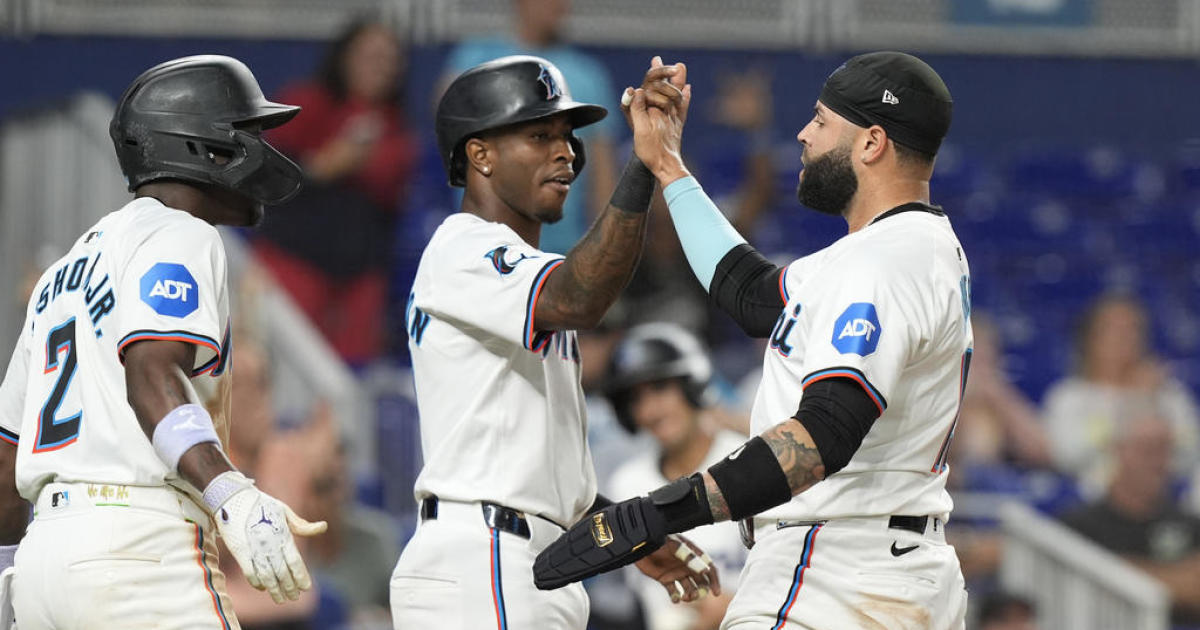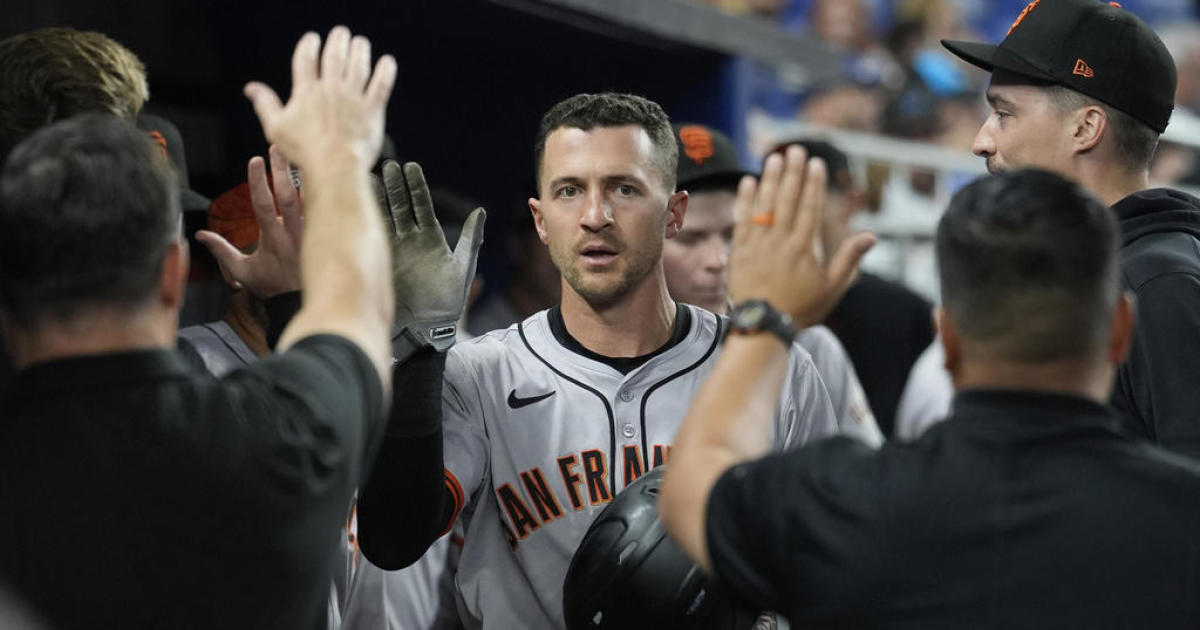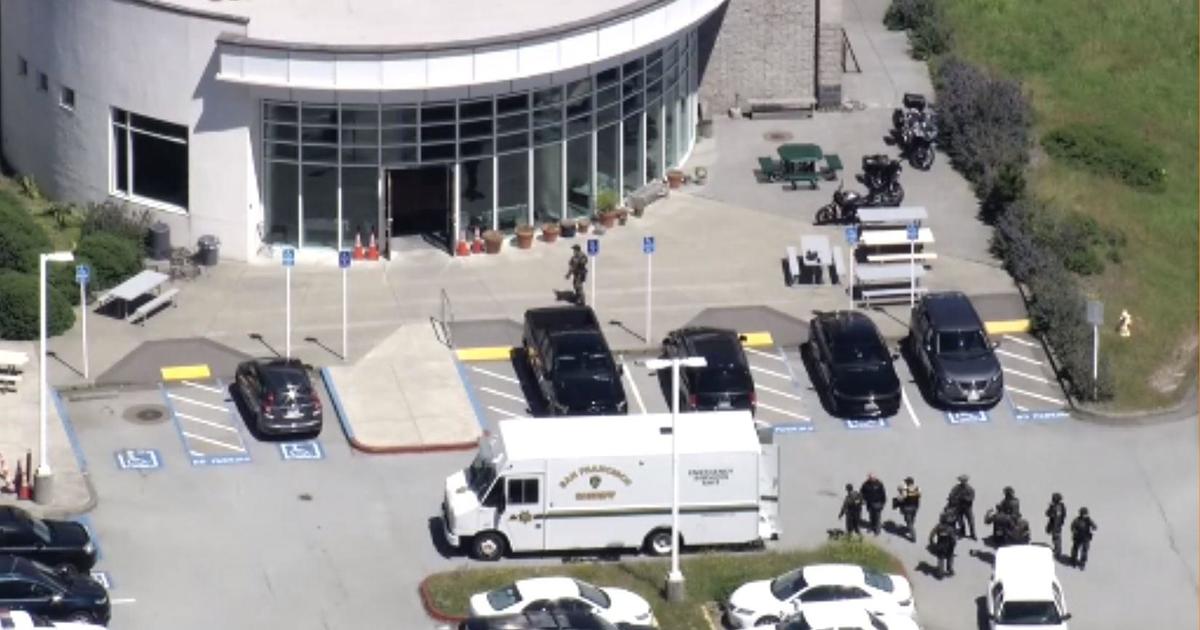Bonds' Sentencing Brings BALCO Saga Near Close
SAN FRANCISCO (CBS / AP) -- The largest federal criminal investigation into sports doping began more than nine years ago with a tax agent digging through the trash of the now notorious Bay Area Laboratory Co-Operative. Barring an appeal, the government's work comes to an anti-climactic end Friday when Barry Bonds—the probe's highest-profile catch—is sentenced for obstruction of justice.
In between, the federal government spent millions of dollars and untold staff hours obtaining the convictions of 11 people. Six of them, including track star Marion Jones, were ensnared for lying to grand jurors, federal investigators or the court. Five men, including Bonds' personal trainer Greg Anderson, pleaded guilty to steroid distribution charges stemming from their BALCO connections.
The investigation in general—and the pursuit of Bonds in particular—ignited a debate over whether the government's long involvement was the best use of public resources.
More than seven years after he testified before a grand jury investigating BALCO, Major League Baseball's all-time home runs leader was convicted on just one of four remaining counts against him. And the jury deadlocked on whether Bonds lied about taking performance enhancing drugs.
Now, federal sentencing guidelines suggest a prison term of between 15 months and 21 months. But federal probation officers are recommending that Bonds receive no time, citing his charitable work, the nature of the crime and his otherwise spotless criminal record. U.S. District Judge Susan Illston has sentenced two other BALCO figures convicted of similar crimes to probation and house arrest.
Was it all worth it?
"It absolutely was," said MacGregor Scott, the former U.S. attorney for Sacramento, now in private practice at Orrick, Herrington & Sutcliffe. "It brought a focus and awareness to the steroids issue that wasn't there before."
Scott said prosecutors had to go after Bonds once they concluded he lied to the grand jury when he denied knowingly using performance-enhancing drugs and said he allowed only doctors to inject him. Dozens of other athletes testified truthfully, Scott said.
"There aren't two sets of laws, one for Bonds and one for everybody else," Scott said. "The grand jury is the bedrock of the criminal justice system in the United States."
The probe did lead directly to former U.S. Sen. George Mitchell's in-depth investigation of drug use in Major League Baseball and his seminal Mitchell Report, which in turn prompted MLB and its players' union to strengthen their steroids policy.
Yet the relatively short list of convictions leaves some, perhaps most notably the BALCO founder himself, unimpressed.
"Obviously, the BALCO case brought about a greater public awareness regarding the rampant use of drugs at the elite level of sport, which is a good thing," said Victor Conte, the BALCO founder and president—who spent four months in prison after pleading guilty to steroids distribution. "As the BALCO case comes to a close, I don't think it was the highest and best use of the tens of millions of taxpayer dollars that were spent on the case."
Bonds will have 14 days after his sentencing to file a notice of appeal.
The trial itself ended ambiguously in April about three weeks after it began.
The jury concluded Bonds purposely evaded responding during testimony to a grand jury investigating steroids distribution in sports with a rambling non sequitur to a question about drug injections, and the jurors convicted him of obstruction of justice. But they couldn't reach a unanimous agreement on the heart of the case, deadlocking on three charges alleging Bonds lied to the grand jury when he denied knowingly using performance-enhancing drugs and testifying that no one other than his doctors ever injected him.
Prosecutors in September dropped those charges, foregoing another trial and declaring the one conviction showed the value of the Bonds prosecution.
The government's lead investigator, Jeff Novitzky, said Bonds first came to his attention during his weekly Monday night raids of BALCO's trash during the summer and fall of 2002. Novitzky, who was with the Internal Revenue Service then and is now a Food and Drug Administration investigator, said he found a magazine article quoting Bonds as crediting BALCO with helping him pump up and increase his power.
Novitzky gathered more evidence connecting Bonds to BALCO during September 2003 raids of the lab and the home of Greg Anderson, Bonds' personal trainer at the time. Three months later, Bonds was called before the grand jury and granted immunity from prosecution so long as he testified truthfully.
Despite the jury's mixed verdict, prosecutors still insist Bonds lied.
"The evidence at trial demonstrated that Bonds went into the grand jury with the intention of providing false statements and obstructing the grand jury's efforts to get to the truth in the BALCO matter," prosecutors wrote the judge last week seeking a prison sentence of 15 months for the former San Francisco Giants slugger. "Without truthful testimony, the judicial system simply cannot function properly in its mission-to get to justice."
In recommending that Bonds serve a term of house arrest, probation and community service—but no prison time—the federal probation department called Bonds' conviction an "aberration" and cited his "significant history of charitable, civic and prior good works" as reasons for the judge to "downward depart" from federal guidelines.
The department's report is confidential, but was cited in part by Bonds' lawyers last week in arguing for probation and volunteer work. Earlier this year, Bonds announced he would pay for the college education of the two children of Bryan Stow, the Giants fan who remains hospitalized after the highly publicized opening day beating in the parking lot of Dodger Stadium.
Bonds' lawyers quote an unidentified nurse writing in a letter to Illston that Bonds often visits sick children at the University of California, San Francisco's Benioff Children's Hospital. He paid for the 2009 renovation of what is now the Barry Bonds Family Foundation Playroom, which he visited in June.
"Barry Bonds is a hero to us at the UCSF Benioff Children's Hospital," the nurse wrote. "I consider being a character witness for Barry Bonds a privilege."
(Copyright 2011 by CBS San Francisco. All Rights Reserved. This material may not be published, broadcast, rewritten, or redistributed.)



